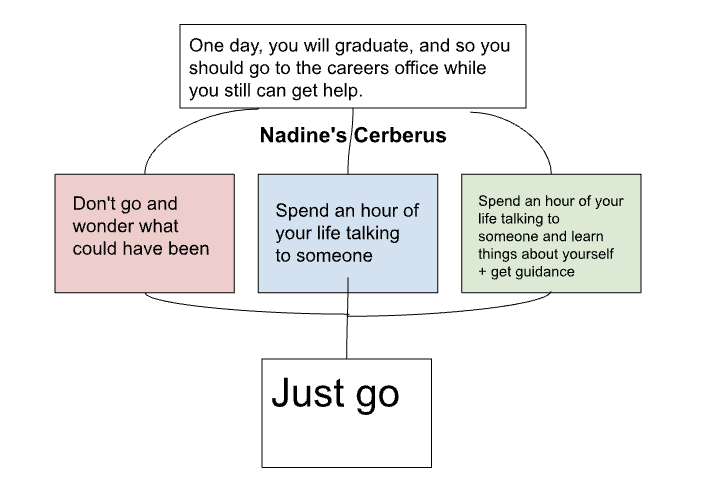On weekends, I teach tuition (so that I can afford stupidly expensive coffee on dates). I can tell one of my students is very bright. Strangely enough, the light seems to have dimmed recently ever since she got a new tuition buddy. Don’t blame the buddy. Buddy too, is vocal and engaged, albeit a little too receptive to suggestions (no, not in that way, you pervert). I thought Buddy would have been the perfect match for my once vocal and engaged tutee. What was up with that?
I recognized in her the same sort of thing that happens in many of my friends. Placed in a classroom with many well-read, well-spoken personalities, it is easy to feel overwhelmed. Cowed by the level of engagement that rings in the class, many bright, exceptional students retreat somewhere else. The retreat however, is not surrender. In fact, most seek clarification and answers of their own initiative, often instinctively and immediately. They ask their friends or find their teachers during breaks. But you see, the classroom is small and class must still go on. Figuring things out as other things happily carry on is a recipe for disaster. And so the cycle repeats, the stress mounts. But let’s get one thing straight, students here in Law are not callous or indifferent. Quite the opposite, in fact. And of course they know this too, so instead of apathetic they adopt a different adjective for themselves — ‘stupid’. This, I think, is stupid.
I experience the same thing too and it shows in the type of responses/engagement I offer in Torts (my favorite subject) and those shown in Crim (my ‘favorite’ subject). Note the change in verbs: ‘offer’ versus ‘show’. Of course, there’s a pretty performative aspect of any classroom. I’m not here to air popular grievances about ‘wayang’ or debate the merits of incorporating ‘class participation’ (perhaps more accurately, class performance?) as part of our grades. That’s something for boring people to care about. What I want to know is whether it’s natural to feel like I’m only as good as my next answer in class. (The politically correct answer, by the way, is yes.)
At the same time, I know that in some small way, I contribute to people feeling this way about themselves too. I speak up in class. A lot. Plus I look like I’m trying to give birth through my nose when I hear something I disagree with (long time woes of being an ex-debater I guess). I also read my cases so that I don’t get blindsided by charismatic, but intimidating tutors. Am I purporting to be one of the aforementioned ‘well-read, well-spoken personalities’? Well I certainly wish I were. But the truth is I’m just as worried about tests, an uncertain future and the opinions of others, as anyone else in my classroom. That’s the sort of environment we’re in. An environment where realistically, the difference between you and me is so slight as to be negligible. Given that, I think that anyone would jump at the chance to exaggerate any distinction, especially about intelligence. So again, we’re back at stupidity.
A student’s popular responses to this state of affairs unfold in a few ways. Excessive complaining about how unprepared s/he is. Who after all, can criticize the student who has convincingly undermined his/her own position; pre-emptive admissions defeat all possible attacks. Or perhaps dismissing those whom they perceive to be ‘above’ them in some way (“Aiya you worry for what, you so smart.”). And finally, false modesty in any and all forms. These are not strictly ‘sins’ of course. And they’re a lot harder to identify eloquently which in turn makes them easier to grate on the nerves. They are in a way, the ironic equivalents of our general peeves such as cowardice, contempt and chutzpah. (Chutzpah means arrogance but I was just trying to find another ‘c’ word to fit in with the rest. Don’t worry, I didn’t know what it was till I went to Thesaurus.com either.) The woes here are much like a university degree: tiring, deceptive and indicative of fairly decent intelligence.
So I went looking for alternative ways of handling this. Stephen Fry, helpful as always, had a suggestion. He quotes Shakespeare. He remarks on the description of Falstaff: “not merely a wit, but a cause of wit in others”. Imagine that! A person whose intelligence buoys the company s/he keeps rather than leave everyone feeling diminished. A person who brings out in you all that you envy in him/her. I like that thought a lot. That seems like a sensible way of approaching things. That seems sincere too. In fact, that seems like what a smart person would do.
Written by: Kim Bumsoo (Year 1)






